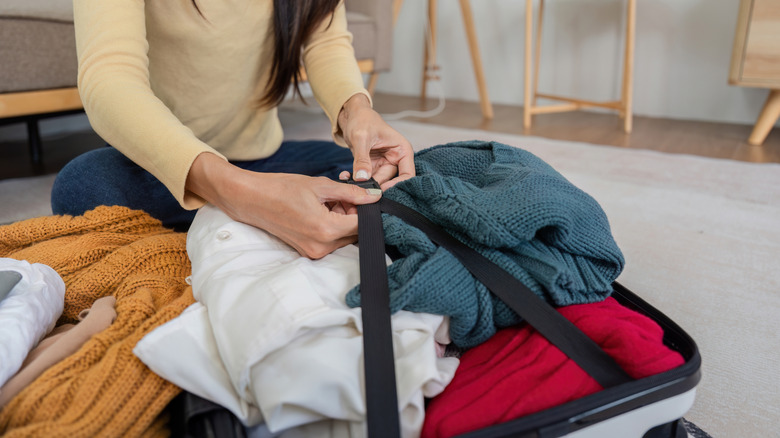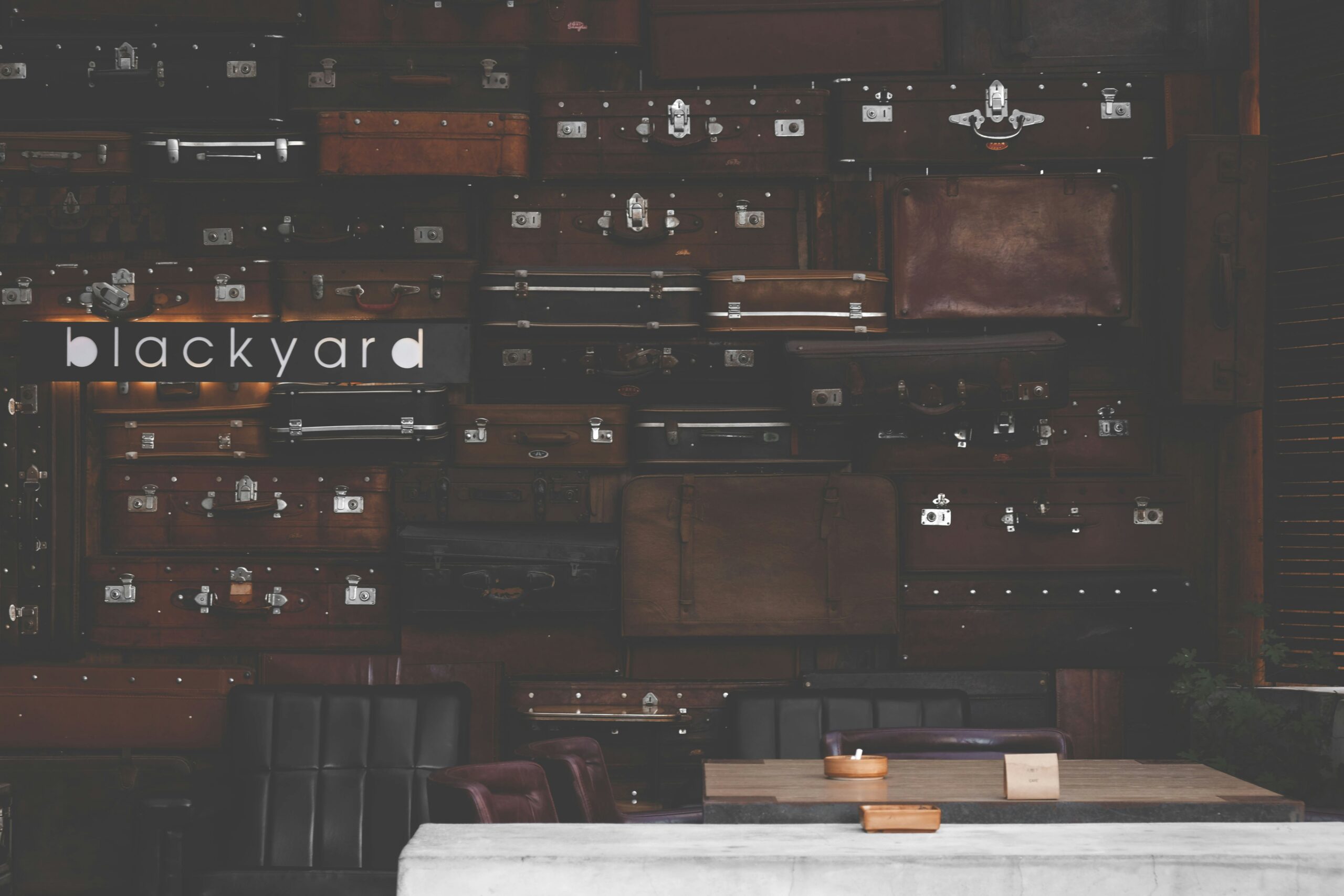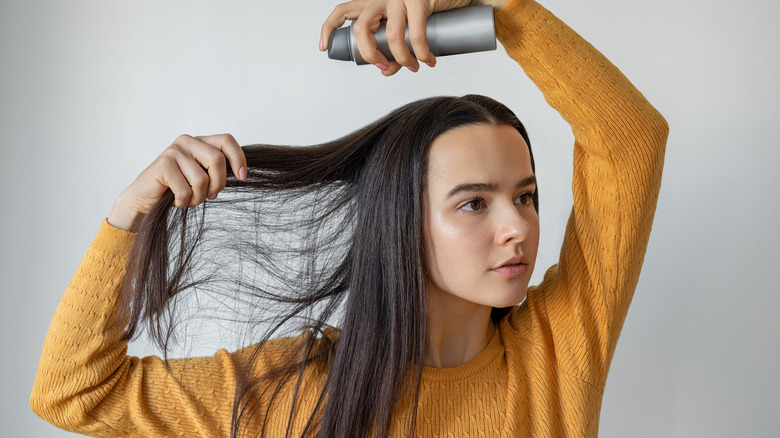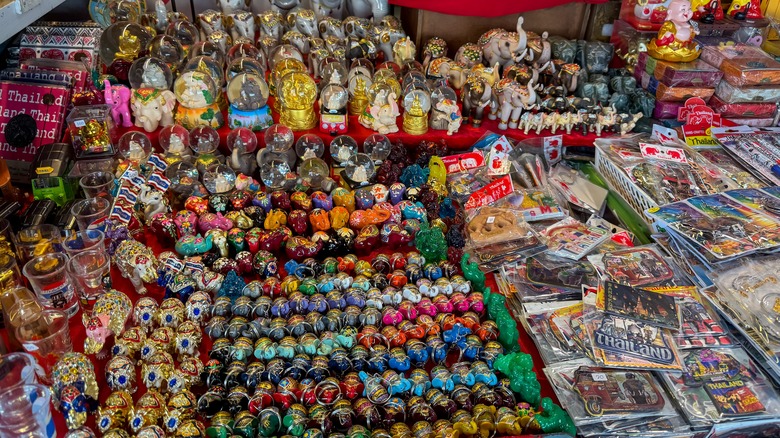Looking to maintain your hygiene on long-haul flights? While it may be tempting to brush your teeth in the airplane lavatory after a meal, our expert advises against it. According to registered dental hygienist Katrina Sanders, the water in plane bathrooms is not meant for consumption and can introduce harmful bacteria, fungi, and viruses into your mouth. Additionally, airplane restrooms are known to be hotspots for germs, with surfaces covered in thousands of bacteria and viruses. Instead, Sanders recommends using disposable, single-use brushes and swishing with bottled drinking water for rinsing. Other alternatives include gum, mouthwash, mouth sprays, and teeth-friendly probiotic lozenges. To keep your toothbrush clean, invest in toothbrush head covers and discard your toothbrush if you become sick while traveling. Stay fresh and germ-free on your next flight!
The Hygienic Practice to Avoid in Plane Bathrooms
Shop These Accessories for a Comfortable Trip
Introduction to the topic
When it comes to personal hygiene, it’s important to maintain good practices even when traveling. One area that often gets overlooked is oral hygiene, specifically brushing your teeth in airplane bathrooms. While it may seem convenient to freshen up during a long flight, there are several downsides to this practice that we should be aware of. In this article, we will explore the expert advice on the specific practice to avoid and discuss safe alternatives for maintaining oral hygiene while traveling.
The Downsides of Brushing at 30,000 Feet
Using non-potable water
One of the main reasons why brushing your teeth in airplane bathrooms is not recommended is due to the water source. The water used in these lavatories is not potable, meaning it is not safe for consumption. While tap water in most places is treated to specific standards, airplane tap water does not go through the same regulations. Introducing unclean water into your mouth can lead to the introduction of bacteria, yeasts, fungi, viruses, or molds.
Introduction of bacteria, yeasts, fungi, viruses, or molds
As mentioned previously, using the unclean water in airplane lavatories can introduce various microorganisms into your mouth. These microorganisms can come from the water itself or from the surfaces in the restroom. Rinsing your toothbrush bristles with unclean water can harbor these microorganisms and allow them to grow on the moist surfaces of the bristles. This can potentially lead to infections or illnesses.
Harboring microorganisms on toothbrush bristles
In addition to introducing microorganisms into your mouth, another concern is the potential for microorganisms to thrive on toothbrush bristles. The moist environment of the toothbrush bristles provides an ideal breeding ground for bacteria, yeasts, fungi, and other microorganisms. This can increase the risk of oral infections and other health issues.
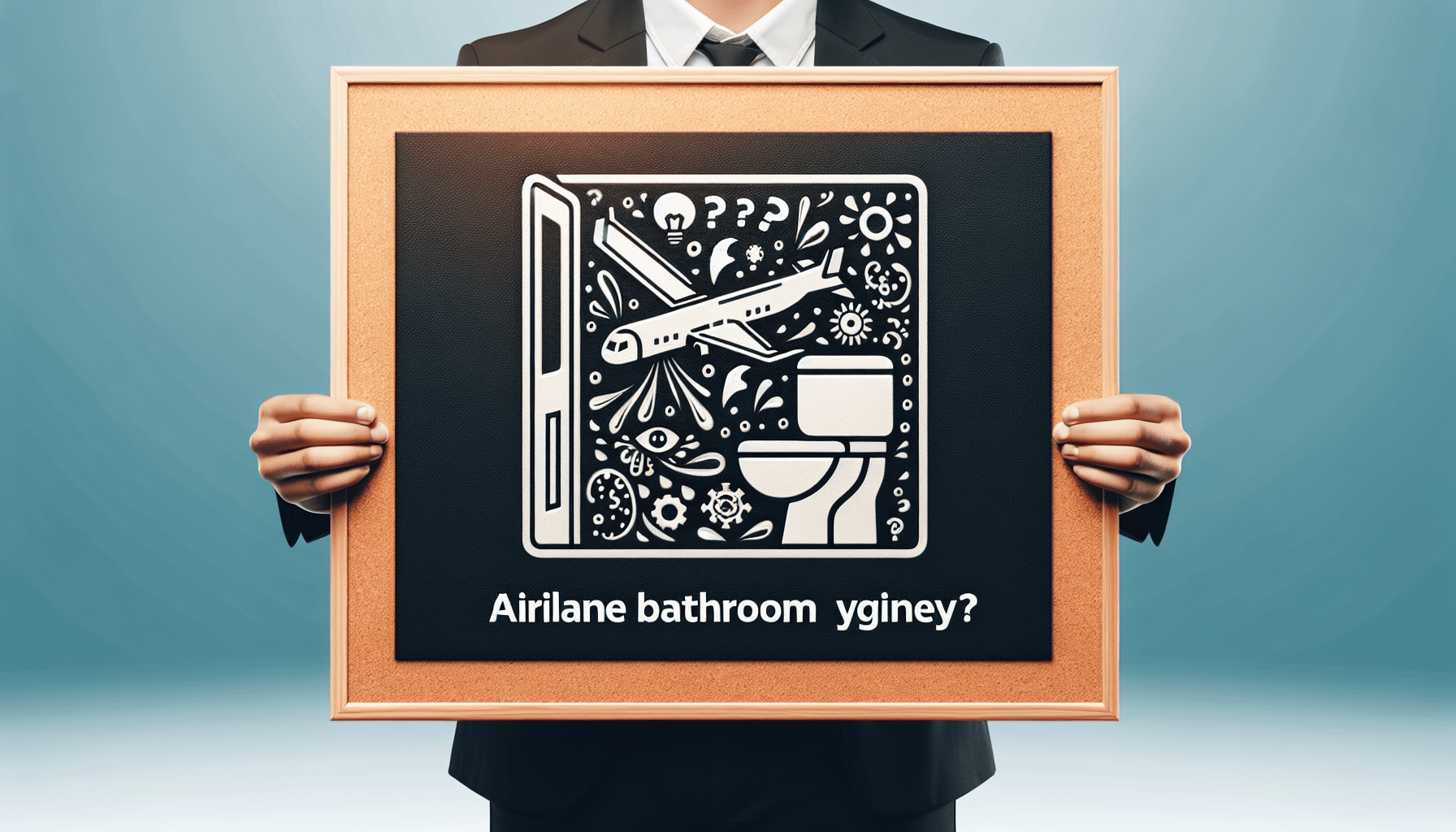
Shop These Accessories for a Comfortable Trip
Airplane Restrooms and Bacteria
Germiest spots in airplane restrooms
Airplane restrooms are known to be one of the germiest places in the entire cabin. While the dirtiest spot in your airplane seat is often the back pocket, the restroom is a hotspot for bacteria and other microorganisms. Surfaces such as lavatory napkin dispensers, sink faucets, and door handles are covered in thousands of bacteria, viruses, molds, and other icky microorganisms.
Prevalence of viruses and bacteria in public settings
In public settings, including airplane restrooms, viruses and bacteria can be present even if they are not visible to the naked eye. Germs from different parts of the world can coexist in these spaces, increasing the risk of exposure to contagious diseases. Fecal matter can also contribute to the presence of bacteria and other microorganisms, especially if the lid is not closed prior to flushing.
Potential contamination from fecal matter
Fecal matter contains a significant amount of bacteria, and when it comes into contact with your toothbrush bristles, it can lead to illness. Airborne particles from fecal matter can enter the air in a bathroom, especially when the lid is not closed before flushing. This can pose a risk to your oral health if these particles stick to your toothbrush bristles.
Germy surfaces in airplane restrooms
Aside from the presence of bacteria and viruses in the air, various surfaces in airplane restrooms can contribute to the spread of microorganisms. Door handles, sink faucets, and other frequently touched surfaces may not always be properly cleaned or sanitized. This increases the likelihood of cross-contamination when you touch these surfaces while cleaning your teeth.
Lack of handwashing after toilet use
Another factor to consider is the lack of handwashing by some individuals after using the restroom. If someone does not wash their hands properly or at all, they may leave behind harmful bacteria on surfaces such as door handles or faucets. When you come into contact with these surfaces while brushing your teeth, you risk transferring these bacteria to your mouth.
Safe Alternatives for Oral Hygiene on Planes
Introduction to maintaining oral hygiene
While avoiding brushing your teeth in airplane bathrooms is recommended, it’s still essential to maintain oral hygiene while traveling. Neglecting oral care can lead to bad breath, tooth decay, and other dental issues. Fortunately, there are safe alternatives that can help you maintain oral hygiene even during a long flight.
Using disposable, single-use brushes
A simple and convenient alternative to using your regular toothbrush in airplane bathrooms is using disposable, single-use brushes. These ready-to-go brushes eliminate the risk of introducing bacteria or other microorganisms from unclean water or surfaces. Disposable brushes are easy to pack in your carry-on bag and can be used as needed throughout your journey. To be more environmentally friendly, consider opting for a bamboo option.
Rinsing with bottled drinking water
After brushing your teeth, it’s important to rinse your mouth to remove any residual toothpaste or food particles. However, using the water available in airplane bathrooms is not advisable. Instead, swishing a little bottled drinking water can serve as a safe substitute. Bottled drinking water is typically free from the contaminants that may be present in the water on the plane.
Alternative products for oral hygiene
In addition to disposable brushes and bottled drinking water, there are other products that can help maintain oral hygiene while traveling. Gum with antimicrobial ingredients, such as xylitol, can help freshen your breath and reduce the growth of bacteria. Mouthwash and mouth sprays with antimicrobial properties can also be used to keep your mouth clean. Teeth-friendly probiotic lozenges can provide additional oral health benefits, particularly in terms of balancing the natural flora in your mouth.
Tips for keeping toothbrush clean while traveling
To ensure the cleanliness of your toothbrush while traveling, it’s crucial to take certain precautions. Using toothbrush head covers can help block harmful microorganisms and prevent contamination. It’s also important to keep your toothbrush separate from other items in your travel kit to avoid cross-contamination. If you become sick while traveling, it’s advisable to dispose of your toothbrush to prevent the spread of illness and avoid reusing a contaminated toothbrush.
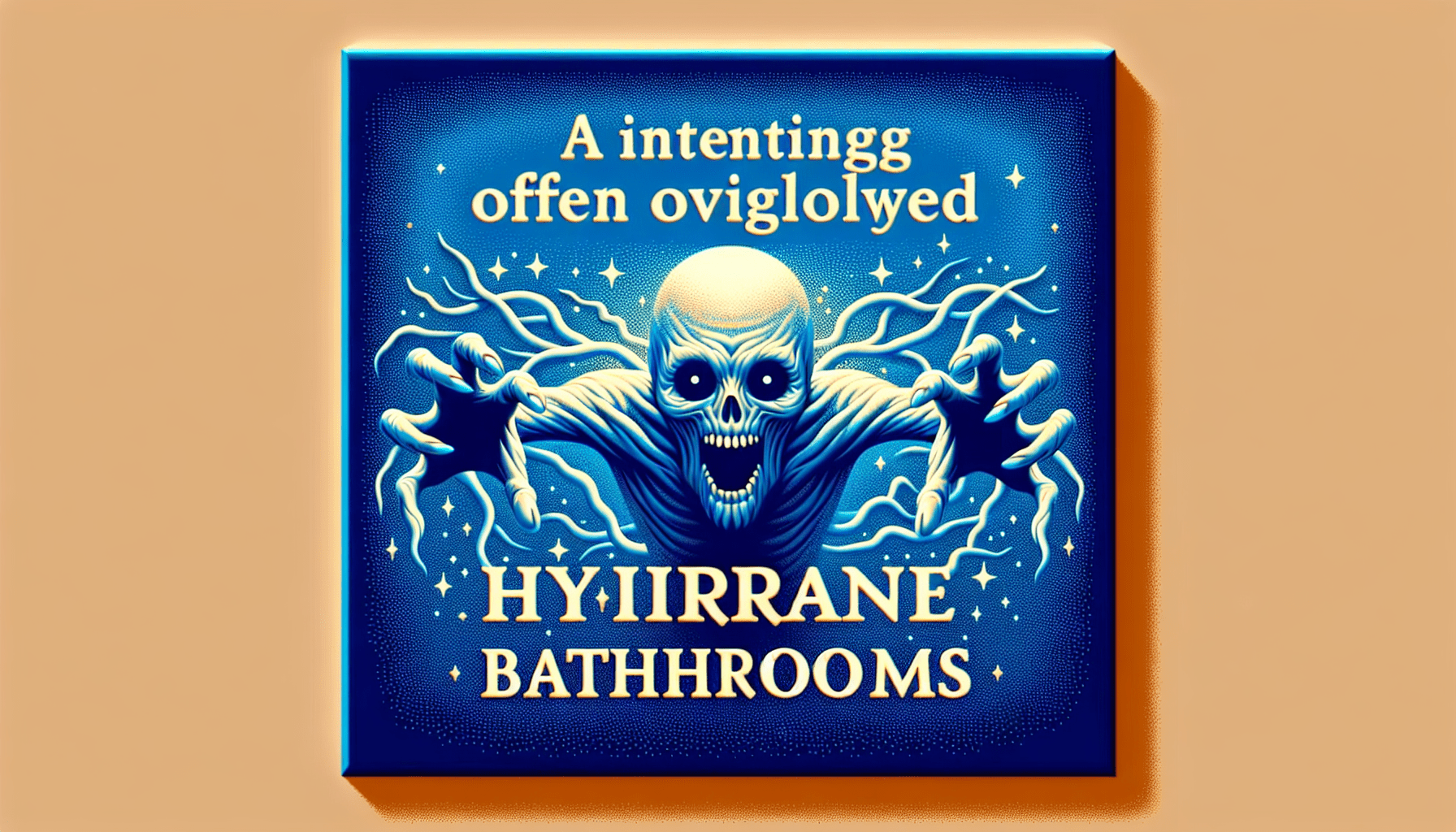
Expert Recommendations
Advice from the dental hygienist
According to Katrina Sanders, a registered dental hygienist, brushing your teeth in airplane bathrooms is not the best practice for maintaining oral hygiene while traveling. She emphasizes the importance of using safe alternatives and avoiding the potential risks associated with unclean water and surfaces. Sanders recommends disposable, single-use brushes, rinsing with bottled drinking water, and considering other products like gum, mouthwash, and probiotic lozenges for oral hygiene while on a plane.
Emphasizing the importance of oral hygiene while traveling
Maintaining oral hygiene is crucial regardless of where you are, and traveling should not be an exception. Poor oral hygiene can lead to various dental problems, discomfort, and embarrassment. By following expert recommendations and utilizing safe alternatives, you can ensure that your oral health remains a priority even during flights.
Conclusion
In conclusion, brushing your teeth in airplane bathrooms is a hygienic practice that should be avoided. The water available in these lavatories is not safe for consumption and can introduce harmful microorganisms into your mouth. Additionally, airplane restrooms are germ-ridden environments, increasing the risk of cross-contamination. To maintain good oral hygiene while traveling, it’s important to use safe alternatives such as disposable brushes and rinsing with bottled drinking water. These practices, along with the use of other alternative oral hygiene products, can help preserve your oral health and prevent potential illnesses. Remember to follow the expert recommendations and prioritize your oral hygiene during the journey.



